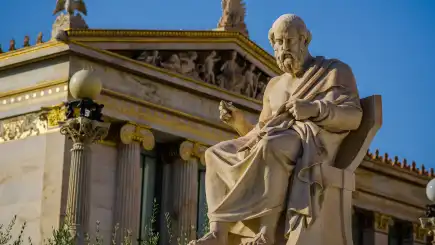Learn about Western civilization with online courses and programs
What is Western civilization?
Western civilization refers to the cultural, historical, and intellectual heritage that has evolved over centuries in Europe and North America. It encompasses a wide array of achievements, from the development of democratic governance in ancient Greece to the cultural efflorescence of the Renaissance and the Enlightenment's intellectual revolutions.
Studying Western civilization provides insight into a diversity of cultures, languages, and traditions. From the architectural marvels of the Roman Empire to the literary achievements of the Romantic era, it reflects human creativity and innovation across the centuries.
Browse online Western civilization courses
Western civilization course curriculum
In a course focused on Western civilization, learners could explore a wide array of topics that encompass the cultural, historical, and intellectual dimensions of this rich heritage. Some key areas of study might include:
Ancient civilizations
Medieval Europe
The Renaissance and Humanism
Reformation and religious conflicts
The industrial revolution
edX offers online courses that allow learners to study a variety of topics related to Western civilization. Sign up for an accelerated boot camp or enroll in a full degree program and start working toward a bachelor's degree or (for more advanced learners) a master’s degree in a relevant subject. You can also explore executive education courses specifically designed for busy professionals.
Explore jobs related to Western civilization
Learning about Western civilization can lead to a diverse range of career opportunities in fields that value critical thinking, cultural understanding, historical knowledge, and research skills. Some potential careers for individuals who have studied Western civilization include:
Historian: Researches, analyzes, and interprets historical events and trends. They may work in academia, museums, archives, or as consultants for historical documentaries and publications.
Archivist/curator: Preserves and manages historical documents, artifacts, and collections in museums, libraries, and archives.
Museum educator: Develops and delivers educational programs and exhibits in museums and cultural institutions, helping the public understand and appreciate history and art.
Librarian: Can specialize in historical collections, archives, or academic research, assisting patrons in accessing relevant materials.
Each of these roles will have different education and skills requirements. Some employers may seek candidates with a degree in history, depending on the role. Before deciding on a specific learning path, research the positions you hope to pursue and align your coursework with your career goals.

